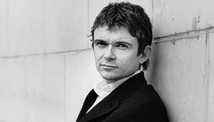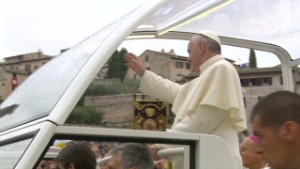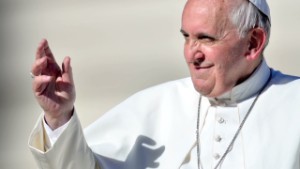
(CNN) -- "I don't know if organized criminals have the capability to do something to the Pope. But they are certainly thinking about it."
These words, uttered in a recent interview by an Italian anti-Mafia prosecutor, don't quite justify the alarming worldwide headlines they provoked, but at the same time it would be rash to dismiss them out of hand.
The new Pope represents a serious threat to some established criminal interests at a critical moment in the long history of the Mafias' relationship with Catholicism -- a past marked by both intimacy and violence.

John Dickie
Italy's Mafia problem is as old as the Italian state. The three major Mafias -- the Camorra, the 'Ndrangheta, and Cosa Nostra -- originated in the political violence that led up to Italian unification in 1860. But only in 1993 did a Pope explicitly denounce the Mafia. Speaking in Sicily, John Paul II warned mobsters that God's judgement was at hand. Cosa Nostra's own verdict on the Pope's words came two months later, when it planted bombs that seriously damaged two ancient churches in Rome.
Before that epoch-making rupture, mafiosi and priests had rubbed along pretty well. The reasons were political. The Church loathed the new Italian state because its unification had robbed the Pontiff of his earthly kingdom, leaving him only with the Vatican City. So the Church looked elsewhere for pious sources of authority. And Mafia bosses have always been good at dressing up as devout paladins of order.
The local saint's day, when a statue is carried through the streets amid prayers and singing, is the focal point of the calendar in many Italian towns and villages. All too often, the local capo would place himself at the head of the parade. The 'Ndrangheta even used a religious festival as cover for its annual general meeting. Since the 1890s, the bosses from across Calabria have gathered in early September at the Festival of the Madonna of Polsi.



During the Cold War, the Church stood firmly in the anti-communist camp. Mafia bosses had every interest in posing as bulwarks against the red menace because it helped them cosy up to the Christian Democrats -- the Catholic political party that held power until 1994. In 1964, the Cardinal Archbishop of Palermo denounced any talk of the Mafia as a Communist plot to besmirch Sicily. In 1982, John Paul II visited Palermo in the middle of an underworld war that saw hundreds killed, and he did not once use the M-word.
READ MORE: CNN
 Welcome to Justin Kingland's Blog News
Welcome to Justin Kingland's Blog News

No comments:
Post a Comment